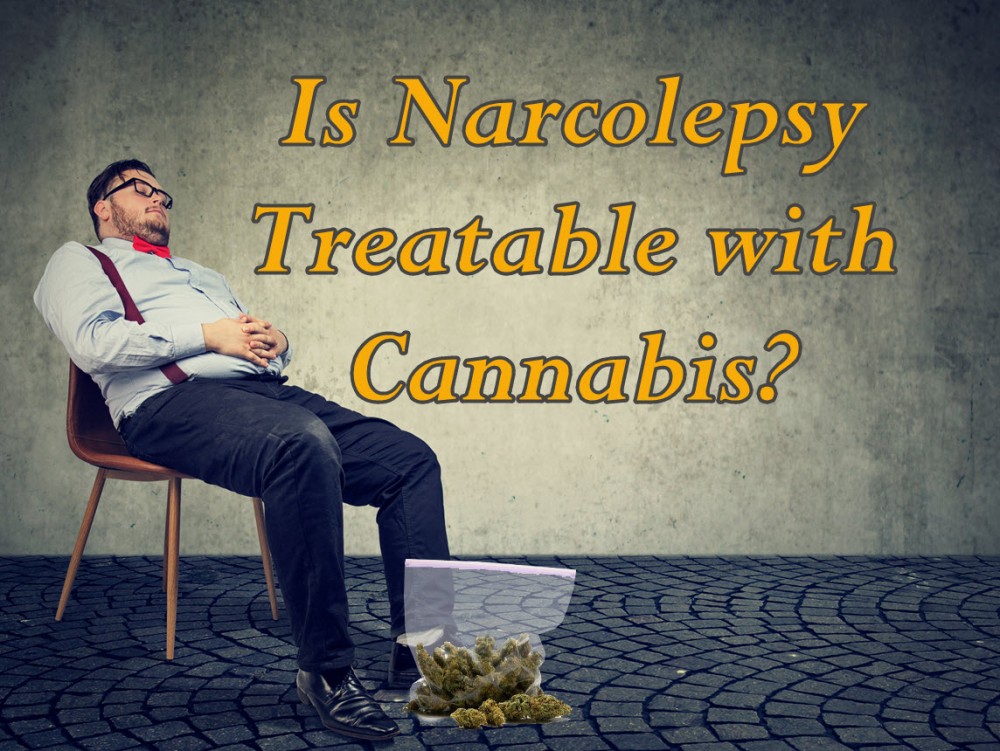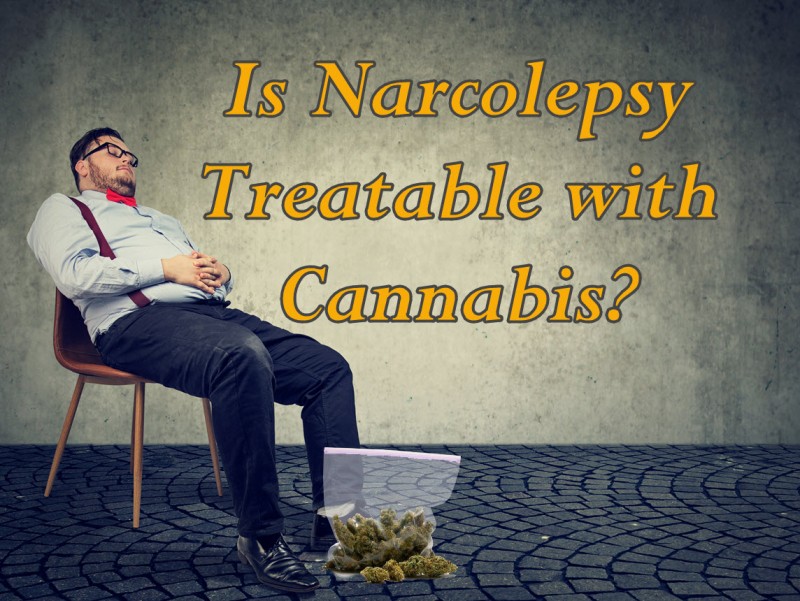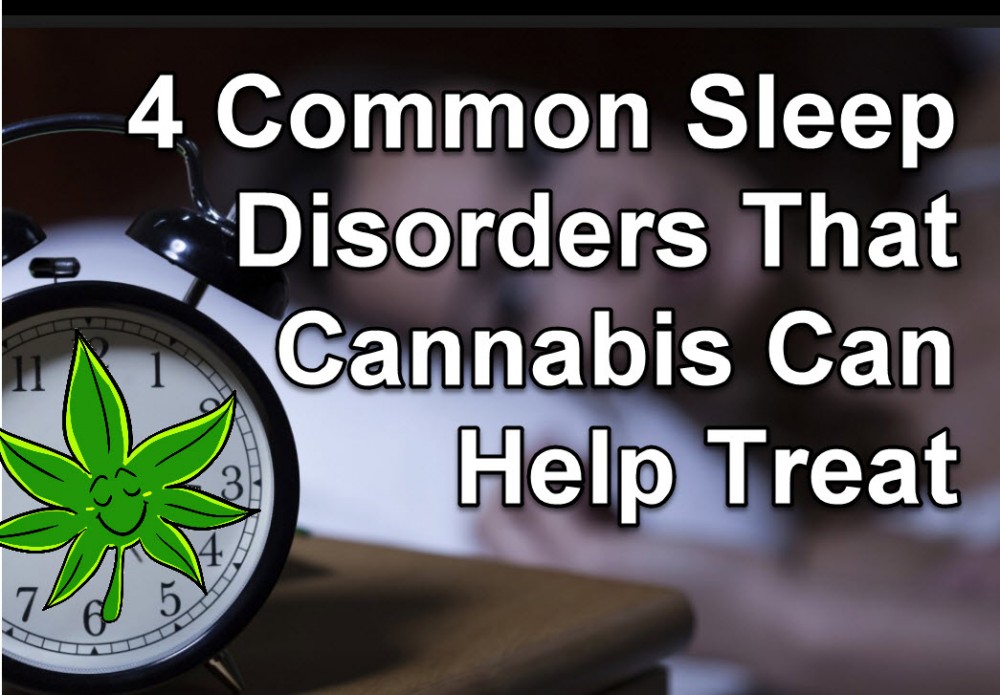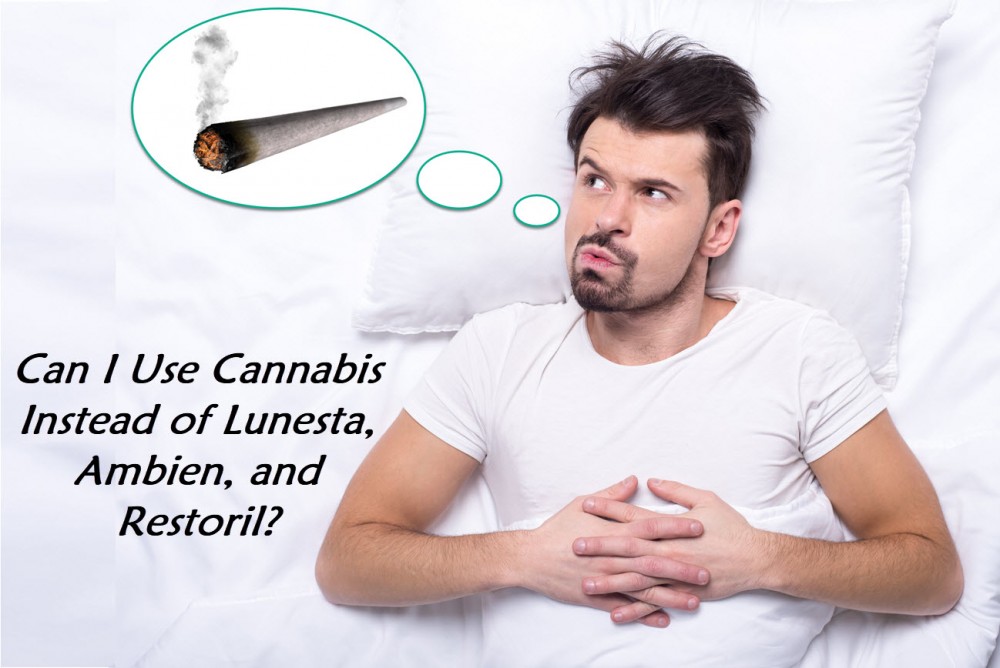Is Narcolepsy Treatable with Cannabis?

Narcolepsy is one of the sleeping disorders that are mostly misunderstood or misdiagnosed. When you suffer from narcolepsy, you have an uncontrollable desire to sleep during the day. You also might fall asleep during any activity at any time. Narcolepsy is a neurological disorder where people skip the sleeping stages of normal sleeping to go into REM sleep almost immediately. This even happens while they are awake. It can also develop into Narcolepsy Cataplexy (Narcolepsy Type 1). This weakens the muscle tone and muscle control becomes harder.
Narcolepsy limits quality of life
As it is a disorder that influences daily activities due to falling asleep at any given time, it affects the quality of life. Because the sleeping disorder can´t be controlled, it limits a person to do a simple task as driving. Imagine driving and suddenly you fall asleep. Or cooking with the gas open, and you fall asleep. Needless to say, living with narcolepsy is not easy.
What are the causes of Narcolepsy?
Because narcolepsy is a nervous system disorder, there are quite a few symptoms that cannabis could effectively treat. Experts are not entirely sure what the exact cause of the disease is. Numerous things can cause problems in your brain and disturb your sleep. They are coming closer to identify the genes involved in narcolepsy. These genes control the production of certain chemicals that control sleep and wake cycles in the brain. One of these chemicals is called hypocretin. They also identified problems in the brain where REM sleep is controlled. The deficiency of orexin-producing neurons in the lateral hypothalamus is also related to the disorder. The brain synthesizes orexin as a neuropeptide that regulates sleep, appetite, and arousal.
The Symptoms of Narcolepsy
During a normal sleep cycle in the REM phase, we dream and sometimes experience muscle paralysis. This explains some of the symptoms of the disorder. The symptoms are:
Excessive Sleepiness in the day – EDS or excessive daytime sleepiness makes it hard to execute ordinary daily routines. There is a lack of energy that impacts concentration and you could suffer from memory loss as well. You are often depressed and feel exhausted all the time.
Cataplexy – It can start with slurred speech and develop into full-body collapse. It often gets triggered by intense emotions like anger, laughter, or surprise.
Hallucinations – the delusions happen any time and is both frightening and vivid. They can occur when you are falling asleep or waking up. Most of the time they are visual, but other senses could also be involved.
Sleep paralysis – This influences your speech and movement while falling asleep or waking up. It can last from a few seconds to a few minutes where you would not be able to speak or move.
Disrupted sleep – Things like vivid dreams, breathing problems, and body movement could influence sleep patterns.
The connection between cannabis and orexin
We already know that the endocannabinoid system and cannabis work well together. Research shows that there is also a strong connection between the endocannabinoid system and orexin. Both orexin and cannabinoids are in the same area of the brain where they form heterodimers in the areas. This is a protein complex that acts as receptors to activate similar intracellular signaling pathways. Orexin and the endocannabinoid system work synergistically through signaling on functional and structural levels in the body.
Cannabinoids also regulate sleep and induce sleep. One observation found that signaling in the endocannabinoid system occurs in hyperpolarization of orexin neurons. This indicates that cannabinoids interact with the orexin neurons too.
Other functions of cannabinoids and orexin
As both receptors 1 and 2 are spread all over the body, the connection of orexin to cannabinoids could influence other conditions too. Something like Irritable Bowel Syndrome could effectively be treated. Orexin also controls appetite where cannabinoid receptors are found in the hypothalamus. It is not entirely certain how food regulation is influenced, but one study showed that neutralized cannabinoid receptors decrease orexin activity levels. This caused a significant decrease in food intake. The importance of the relationship between cannabinoids and orexin still has to be fully understood and studied.
CBD and THC could be very helpful
A sleeping disorder like insomnia is comfortably treatable by CBD and THC. A ratio of 1:1 would do the job and renders all the benefits of both THC and CBD. CBD is known for combating stress and anxiety and when taking in the ratio of 1:1 with THC will keep a person alert. High concentrations of THC, depending on the strand, could have a numbing effect or create a sense of drowsiness. Micro-dosing with both THC and CBD could help a person to maintain better alertness during the day.
Final Thoughts
There is still much to learn about the effect of cannabis on narcolepsy. What seems to be evident though, is that micro-dosing cannabis oil with a ratio of 1:1 THC and CBD could bring relief. At the very least, it might allow the person suffering from narcolepsy to improve their quality of life.
MEDICAL MARIJUANA FOR SLEEP DISORDERS, READ MORE..
CAN MEDICAL MARIJUANA HELP WITH THESE SLEEP DISORDERS?







